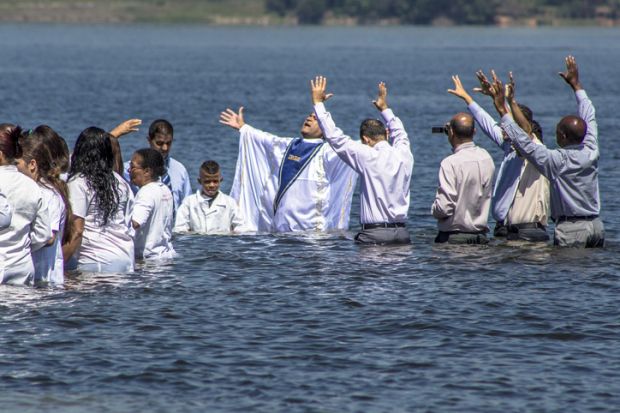US-based biologists rate prospective PhD students who disclose evangelical Christian beliefs more negatively than other applicants, according to an experiment that reopens the debate about the relationship between religion and science.
The study, conducted by researchers at Arizona State University, says that perceptions of bias against people with religious beliefs could be deterring Christians from pursuing academic careers, which could in turn be contributing to the decline in public trust in science in the US.
The authors say that it is not necessarily a given that evangelical Christians reject key scientific concepts such as evolution, and that scientists should be wary about basing their judgements on stereotypes.
In the first stage of their experiment, the researchers asked 494 biology faculty based in US universities to rate applications from potential PhD students that were identical apart from references to being president of either a campus Christian association, atheist association, or activity-based association.
In this part of the study, they found no significant differences in scientists’ perceptions of religious and non-religious applicants.
In the second stage of the experiment, a further 261 biologists were asked to rate PhD applications that were identical apart from references to either a mission trip for the evangelical organisation Campus Crusade for Christ, or voluntary work for the United Nations Children’s Fund. The former application was accompanied by a recommendation letter emphasising the student’s faith, while the latter had a letter emphasising their commitment to service.
This time the researchers found that scientists regarded the evangelical Christian applicant to be significantly less hireable, competent and likeable. Views on hireability and competency were unaffected by the religious views of the academic completing the response, but atheists showed a stronger bias when it came to likeability.
The study authors – Elizabeth Barnes, Jasmine Truong, Daniel Grunspan and Sara Brownell – emphasise that the applications indicated nothing about the student’s political attitudes or views on evolution.
They also conducted a survey of 664 students which found that 52 per cent felt that discrimination against Christians was a problem in science, and 35 per cent felt that it was not uncommon.
The researchers say their experiment, published in Plos One on 29 January, indicates that bias against Christians in general may be less prevalent than is often perceived. They acknowledge, however, that evangelical Christianity has historically been associated “with anti-science attitudes and conservative sociopolitical beliefs that are relatively uncommon in academic culture”.
But, they add, such stereotypes “are not necessarily accurate when applied to an individual person”, and argue that mitigating perceived bias could improve the public’s perception of scientists.
“By having more Christians in science, we can have more representatives for science to communicate to the Christian public,” Dr Barnes said.
后记
Print headline: Lack of faith in religious PhDs




